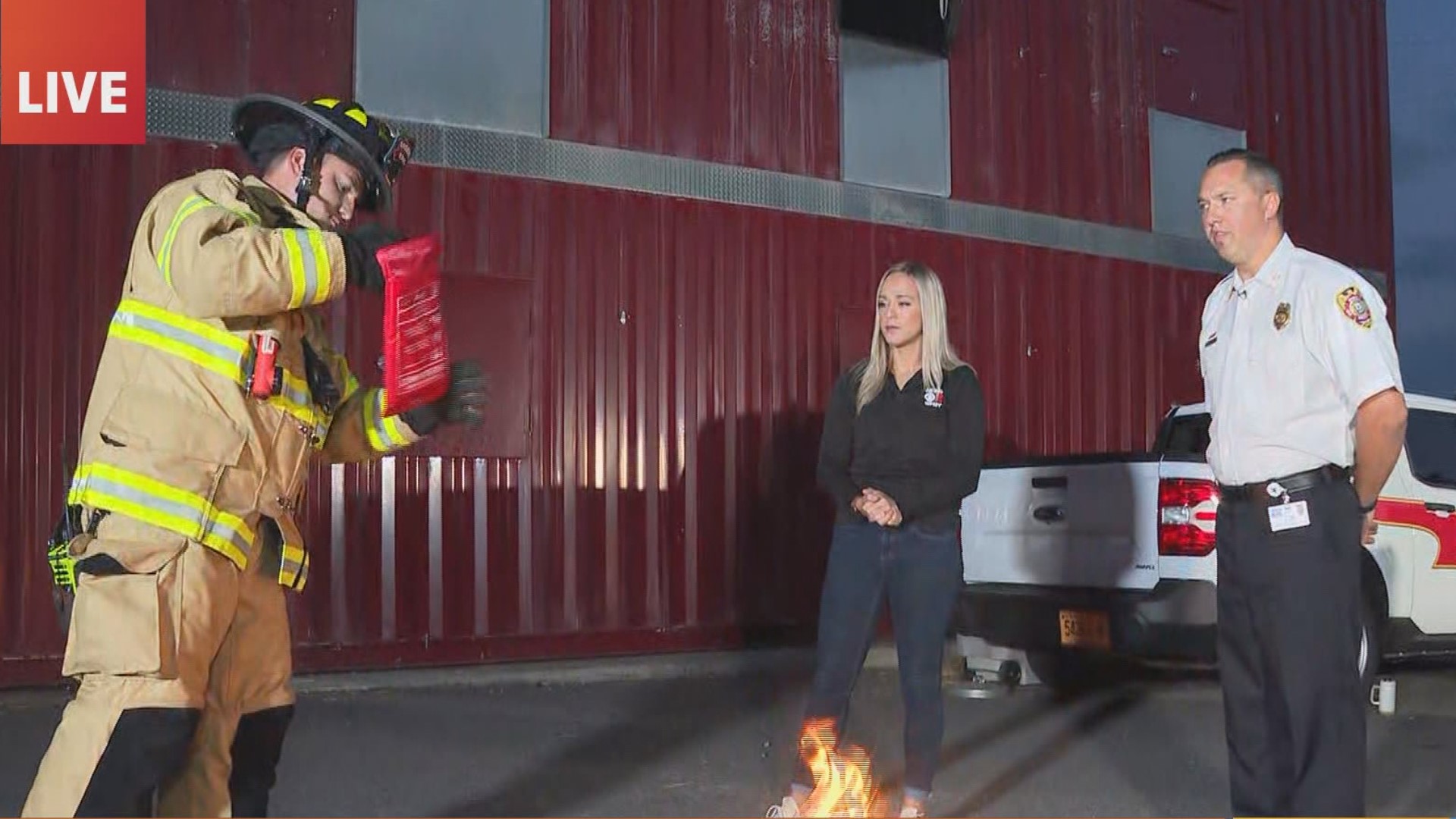GREENSBORO, N.C. — September is National Preparedness Month and with the change of seasons halfway through the month, it's important to be ready for what can come.
The Greensboro Fire Department has a few tips for people ahead of colder weather.
Currently, we are in the middle of hurricane season and if you haven't figured out your plan, now is the time to do so.
Deputy Fire Marshall, Hunter Pegram, said to have an emergency plan in place for when severe weather comes our way.
He said to have a plan before, during, and after the weather moves through.
First, he said before the storm comes, develop an evacuation plan. He said now is the time to begin planning where you would go and how you would get there.
He said to be in a place that is well-built and outside flood-prone areas, and don't just have one option in mind, plan several routes.
Pelgram said to also be sure and account for your pets in that evacuation plan.
He said that Greensboro typically gets high winds and flooding during hurricane seasons, so be sure to strap down any outdoor furniture or items like a grill.
Also, be sure to trim down the trees and seal any areas you might be worried about in your home. Also, have a generator, plenty of flashlights, and batteries on hand, and keep vital records in a safe place, like a waterproof and fireproof box.
It's also important to be prepared during a storm. If you're sheltering in place, you’re going to need supplies not just to get through the storm but for the potentially lengthy and unpleasant aftermath.
This can be food, water, and medicine to get through at least three days, in the case of a major outage.
Also, stay weather-ready, but tuning into the news, or onto NOAA Weather Radio to stay updated about severe thunderstorm watches and warnings. He said to go to your secure location, stay away from windows, and hunker down.
After the storm, Pelgram said to stay informed and make sure it's safe to get outside, check on your family, assess the damage, and call emergency services if you need help or assistance.
Having a generator in these situations can be important to help keep the power going, but Pelgram said there are a lot of dangers, so you need to make sure you're using it properly.
He said to be sure to follow the instructions because every generator is different. He said only use it outside due to the high levels of carbon monoxide fumes that are produced as they operate. He said operating a generator in your home, shed, garage, camper, or barn can result in a dangerous buildup of poisonous gases.
This also shows how important it is to have a working carbon monoxide detector in your home to ensure you are alerted if there is any kind of unsafe level.
He said generators should be kept away from windows and kept under an overhang and protected from rain.
Also, be sure to only use the fuel recommended for your generator according to the instructions and to turn the generator off and allow it to cool completely before adding fuel, since fuel on a hot engine could ignite and lead to a fire.
Always store your fuel outside of your living space and in an approved fuel storage container that is properly sealed. Completely clean up all spills in order to avoid potential fire or fume hazards.
If you have any questions, he said to call the department so they can walk you through the best ways for you to use it.
If you're in the car, it's important to have an emergency kit prepared.
Pelgram said to have non-perishable food, water, and medicine to last each person in your family a minimum of 3 days, and also don't forget your pet's food and water.
Be sure to have cash, a battery-powered radio, flashlights with extra batteries, a cell phone, a car charger, a first-aid kit, a blanket, rags, paper towels, pre-moistened wipes, a basic set of tools along with duct tape, and a car emergency warning device such as road flares or reflectors, ice scraper/snow brush, jumper cables, tarp, raincoat, gloves, a shovel, and a fire blanket.
If you have questions, there is more information on the Greensboro Fire Department's website, here.

